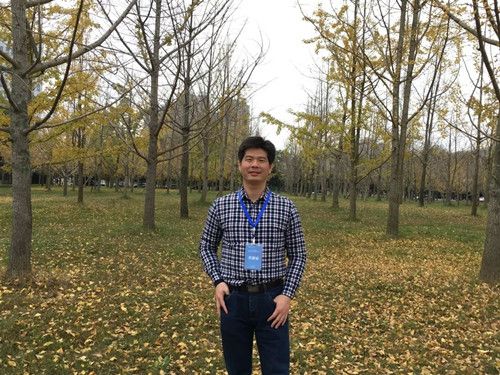News&Events
March is the month for Two Sessions. On March 3, 2019, the second session of the 13th CPPCC National Committee opened in Beijing. On March 5, the second session of the 13th National People's Congress was also held in Beijing. The year of 2019 is the seventieth year of the founding of New China, and also the key year to win the victory of building a well-off society in an all-round way. The two sessions have attracted close attention from all sides. School of Business Administration will keep up with the trend and collect the opinions in the two sessions. From now on, School of Business Administration will invite academics to join us and we will together focus on people's livelihood and the Two Sessions.
Let’s follow our editor and hear the voice from the industrial and commercial circles.
Encourage Startups and Innovation Nationwide
By Tian Bifei
In the 2019 Government Work report, it is pointed out that we will do more to encourage startups and innovation nationwide.We will encourage more private actors to engage in innovation and start businesses, expand the space for economic and social development, strengthen comprehensive services, and give play to the pathfinding role of innovation and entrepreneurship demo centers. We will strengthen inclusive support for innovation and business startups, and implement preferential tax policies such as raising the VAT threshold from 30,000 to 100,000 yuan in monthly sales for small-scale taxpayers. We will reform and improve financial support mechanisms, establish a science and technology innovation board that will pilot an IPO registration system, encourage the issuing of special bonds for innovation and entrepreneurship, expand the use of intellectual property pledge financing, and support the growth of venture capital investment. This shows that the Chinese government will continue to promote startups and innovation in services, tax cuts, financing and other aspects. It is the continuity of government policy, and also adds motivation to double-innovation practice.
New progress were made since 2013 when the Chinese government vigorously carried out the reform on streamline administration and delegate power, and comprehensively implemented policies on startups and innovation.
Over the past five years, the administrative examination and approval items of the State Council have been reduced by 44%, the examination and approval of non-administrative licenses have been completely ended, the investment projects approved by the central government have been reduced by 90%, the intermediary service for administrative examination and approval have been reduced by 74%, and the professional qualification licensing and identification have been greatly reduced. The central government's pricing projects have been reduced by 80%, and the local government's pricing projects have been reduced by more than 50%. We will put fully effort in reforming commercial systems such as industrial and commercial registration and capital registration, and shorten the start-up time of enterprises by more than one third. In 2018, China set up more than 18,000 new enterprises per day, and the total number of market participants exceeded 100 million. The World Bank Doing Business Report shows that from 2012 to 2018, China's Ease of Doing Business Index ranking has rose from 91 to 46. However, the Global Entrepreneurship Monitor report of 2017/2018 shows that China's entrepreneurial activity has declined for four consecutive years, ranking the 29th out of the 54 economies. The commercial and legal infrastructure conditions are below average, ranking the 8th. This shows that although remarkable progress has been made in streamline administration and delegate power, the business environment still needs to be improved in China. In 2018, China has made remarkable progress in reforming enterprises set-up, construction permits, access to electricity, taxation, credit, investor protection and cross-border trade. However, there are still a lot to be improvedin property registration, contract execution and bankruptcy. Moreover, the survey on business environment in China by World Bank take Beijing and Shanghai as sample cities, so its conclusions largely reflect the progress made by Beijing and Shanghai. As the two most developed first-tier cities in China, the business environment in Beijing and Shanghai is obviously better than other cities so the business environment of our country still needs to be improved in order to reduce the entry and exit costs of market participants and improve the activity and quality of startups.
Against the backdrop of the above, it is timely for the government to focus on innovation and entrepreneurship policy and puts forward a series of concrete measures to further promote them in the Government Work Report of this year.
We firmly believe that with the leadership of General Secretary Xi Jinping as core position on the Party Central Committee, follow the guidance of Xi Jinping Thought on Socialism with Chinese Characteristics for a New Era, and with the concerted efforts from people of all our ethnic groups, the innovation and entrepreneurship in China will surely reached to a higher level which will promote employment and economic growth, and help to build a moderately prosperous society in all respects.
Profile

Tian Bifei
Associate professor of School of Business Administration, ZUEL
Supervisor, Entrepreneurship Mentor
Visiting scholar of Texas A&M University; Visiting scholar of University of Canterbury
He has done research in international Business and Entrepreneurship Management for over 20 years
He has published more than 40 articles in journals like Statistical Research, China Industrial Economics, Journals of Quantitative & Technical Economics, China Soft Science, Study in Science of Science. He has published 6 monographs and textbooks
He has presided over 8 national and provincial projects
He has won the second prize of Excellent Achievements of Social Sciences in Hubei Province for twice and the third prize for once
He is the designer for Transnational Business Management course. This course is an excellent English medium course for overseas students in Hubei.
One of the master’s thesis that he has guided won the third prize of the Third National Excellent Master's Dissertation in International Business Program
Member of AIBand USASBE






